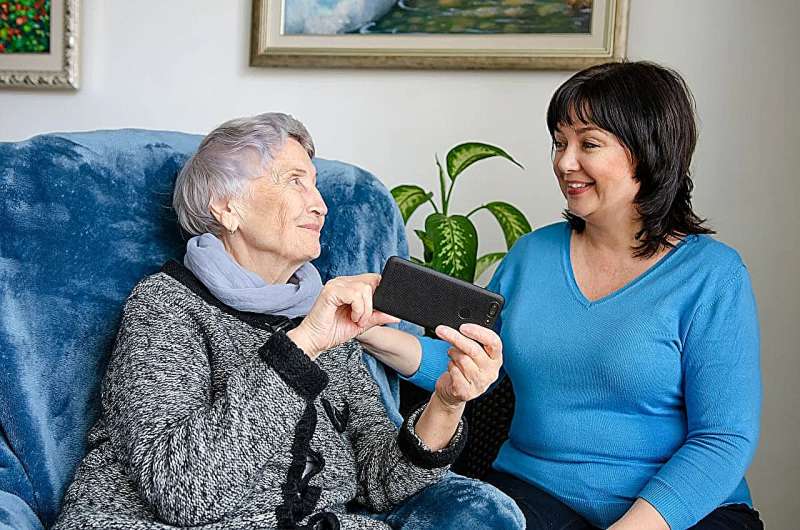Have you ever found yourself quietly logging into a parent's email to check on an overdue bill? Or maybe you've started writing down important passwords because keeping track of everything feels overwhelming? If so, welcome to the world of financial caregiving a role most of us fall into rather than choose.
Let's be honest it's terrifying when you realize a loved one isn't managing their finances anymore. You don't want to step in without permission, and you definitely don't want to mess up. But you also don't want things to fall apart while you wait for "the right time" to talk about it. I've been there, and trust me, you're not alone in feeling that mix of worry and responsibility weighing on your shoulders.
Financial caregiving means helping someone manage their money because they can't anymore whether due to age, illness, or disability. What starts as a small favor like paying bills can often evolve into a full-time role with real legal, emotional, and financial responsibilities. But here's the thing: you don't have to navigate this journey by yourself.
Understanding Financial Caregiving
So what exactly is financial caregiving? At its core, it's stepping in to manage someone else's financial affairs when they're no longer able to do so themselves. This could be your aging parent who's starting to miss bill payments, a spouse dealing with a chronic illness, or even a friend who's lost capacity due to an accident or medical condition.
Imagine Maggie, a thirty-something marketing professional whose father started missing credit card payments and forgetting to renew his insurance. What began as occasional assistance quickly grew into managing his entire financial portfolio. Sound familiar? Maggie's story is more common than you might think.
Financial caregiving typically falls into two categories: informal and formal. Informal caregiving might involve being a conversation partner about money matters, serving as a trusted contact person for banks, or simply helping with day-to-day bill paying. On the more structured side, formal financial caregiving involves legal documents and official roles like having power of attorney, becoming a guardian or conservator, serving as a trustee, or acting as a VA fiduciary or Social Security representative payee.
The numbers tell a compelling story. According to surveys, more than 90% of family caregivers also help with finances, and over 40 million Americans are currently serving as caregivers in some capacity. These statistics according to the Consumer Financial Protection Bureau highlight just how prevalent this responsibility has become in our society.
What Financial Caregivers Actually Do
Day-to-day financial caregiving involves much more than just writing checks. You're essentially becoming the financial guardian angel for someone who trusts you with their livelihood. This includes paying monthly bills like mortgage, utilities, and medications, but also monitoring accounts for potential fraud or errors that could devastate their financial security.
Tax preparation becomes your responsibility, along with managing investments or retirement accounts that once belonged solely to your loved one. Many caregivers find themselves setting up automatic payments to ensure nothing slips through the cracks, while also organizing a mountain of financial documents, passwords, and login information that would make even the most organized person's head spin.
What sets financial caregivers apart from traditional financial advisors or planners is the deeply personal nature of the work. You're not focused on growing wealth or maximizing returns your primary goal is protecting and managing what already exists. Think of yourself as a financial bodyguard, shielding your loved one from scams, identity theft, and the confusing world of modern finance.
But let's talk about the risks, because they're real and important to understand. Without proper authorization, even the most well-intentioned actions can lead to legal trouble. Accidentally misusing funds, making unauthorized transactions, or failing to keep proper records can create serious complications. Sibling conflicts are another common challenge I've seen families torn apart by disagreements over financial decisions, even when everyone had the best intentions.
Getting Started with Financial Caregiving
The hardest part is often starting the conversation. Let's face it talking about money and declining abilities is uncomfortable for everyone involved. But here's what I've learned from talking to dozens of caregivers: putting it off only makes everything more complicated later.
Start with gentle, open-ended questions. Instead of diving straight into "we need to talk about your finances," try something like "What do you want to happen if you're ever unable to handle your own money?" Share stories about other people you know who needed help sometimes hearing about someone else's experience makes the conversation feel less personal and threatening.
Once you've broached the subject, documentation becomes your best friend. Create a comprehensive list of assets including checking and savings accounts, insurance policies, and credit cards. Document all income sources like pensions, Social Security, or VA benefits. And yes, you'll need to collect those all-important passwords and login information just make sure to store them securely.
The legal groundwork is absolutely crucial, and I cannot stress this enough: don't wait until it's too late. Power of attorney is your safety net, but it needs to be established while your loved one still has legal capacity. Understanding the difference between durable power of attorney (effective immediately) and springing power of attorney (triggers upon incapacity) can save you months of legal headaches later.
Thankfully, we live in an age where technology can be our ally. Password managers like LastPass make secure storage simple, while apps like Carefull or EverSafe provide fraud detection specifically designed for families in your situation. Budget templates and spending planners can help you track everything from grocery expenses to medical bills, making the overwhelming feel manageable.
Your Legal and Ethical Responsibilities
When you take on the role of financial caregiver, you're essentially becoming a fiduciary which is just a fancy way of saying you must act in someone else's best interest, not your own. This means never, ever mixing personal funds with those of the person you're caring for. I know it sounds obvious, but in the stress of daily life, these boundaries can blur without careful attention.
Elder abuse laws exist to protect vulnerable adults, and as a financial caregiver, you need to understand and follow them. But beyond the legal obligations, there are ethical boundaries that matter just as much. Respecting your loved one's independence, even when you disagree with their choices, is crucial for maintaining trust and dignity.
Transparency becomes your guiding principle. Keep detailed records of every transaction, no matter how small. Have regular conversations with the person you're helping, even if they seem less engaged than before. And please, don't avoid those difficult conversations out of guilt or fear addressing problems early almost always leads to better outcomes.
Watch for red flags that might indicate trouble ahead. Unexplained changes in spending patterns, conflicts between family members, or poor record-keeping can all signal deeper issues. Sometimes the most well-meaning caregivers inadvertently cross ethical lines, which is why regular self-reflection and outside perspectives are so valuable.
Taking Care of Yourself Too
Here's a truth that many caregivers discover the hard way: you can't pour from an empty cup. The emotional toll of financial caregiving is real and significant. Balancing your own job, family responsibilities, and someone else's financial wellbeing creates a pressure that few people fully appreciate until they're living it.
The guilt can be overwhelming. Selling a parent's home to cover medical expenses, limiting their spending for their own protection, or making decisions about their future without their direct input these choices weigh heavily on even the most confident caregivers. Remember that you're making these decisions out of love and concern, not personal gain.
Building a support system isn't just helpful it's essential. Professional help from lawyers, CPAs, or geriatric care managers can provide guidance when you're facing complex situations. Consider drafting a family agreement or contract to prevent misunderstandings before they start. And don't underestimate the value of regular check-ins with trusted friends who can offer perspective when you're feeling overwhelmed.
Support groups for caregivers exist in many communities, both online and in person. Sometimes just talking to someone who truly understands what you're going through can provide the emotional relief you desperately need. Therapy or counseling isn't just for crisis moments it's a proactive investment in your mental health.
Moving Forward with Confidence
Financial caregiving isn't just about managing money it's about protecting dignity, safety, and trust during one of life's most vulnerable moments. Whether you're stepping in informally or taking on a legal fiduciary role, the earlier you start planning and communicating, the smoother the journey will be for everyone involved.
If you're just beginning this journey, start small. Download free guides from trusted sources like the Consumer Financial Protection Bureau or the American Bankers Association. Talk to a lawyer if major financial decisions are on the horizon. Remember that asking for help isn't a sign of weakness it's a sign of wisdom.
Your experience and insights matter. Every family's situation is unique, and what works for one caregiver might not work for another. That's why sharing your experiences, asking questions, and learning from others in similar situations can be incredibly valuable. You're not alone in this journey, and there's no shame in seeking support when you need it.
The path of financial caregiving is rarely straightforward, but it's one that millions of people navigate successfully every day. With the right preparation, support, and mindset, you can honor your loved one's trust while protecting their financial future and your own peace of mind along the way.
FAQs
What is financial caregiving?
Financial caregiving involves managing another person's finances because they're no longer able to do so themselves due to age, illness, or disability.
How do I start helping with someone’s finances?
Begin by having an open conversation about money concerns, documenting all assets and income, and setting up proper legal authority like power of attorney.
What legal steps are necessary for financial caregiving?
Establishing power of attorney while your loved one still has legal capacity is essential. You may also need to become a conservator or representative payee depending on the situation.
What are common mistakes financial caregivers make?
Common errors include mixing personal and caregiving funds, failing to keep detailed records, not securing proper legal permissions, and ignoring their own emotional wellbeing.
How can I protect myself as a financial caregiver?
Maintain clear documentation of all actions, act only in the best interest of the person you're helping, and seek professional advice when facing complex situations.
Disclaimer: This article is for informational purposes only and does not constitute medical advice. Always consult with a healthcare professional before starting any new treatment regimen.
Related Coverage
Family caregivers need real support. Find resources, respite care, and ways to get paid while caring for loved ones....
Explore the most common health challenges facing senior citizens and learn effective strategies for managing age-related conditions and maintaining well-being as you get older....
Dying and dieing are often confused due to similar spellings. Learn the proper uses of dying, why dieing is incorrect, and tips to remember the right word....
Quickly verify Medicare eligibility online to avoid surprises. Check your coverage status in minutes with our simple guide....
Discover how anti-inflammatory essential oils like frankincense, chamomile, lavender and others can promote swelling and pain relief for conditions like arthritis, gut issues, sore throats....
Elderly heat sensitivity increases risks during hot weather. Know when fans help or harm and how to keep seniors cool and safe....
Finding Medicare in Virginia that fits your needs doesn't have to be confusing. Get clear guidance and local resources....
Learn if you qualify for Medicare eligibility and how to enroll without penalties. Get clear, simple guidance for seniors and disabled individuals....
Compare Michigan Medicare plans and choose the right coverage for your health needs. Get support and save money....
Get clear answers on Medicare open-heart surgery coverage, what it includes, and how to minimize your out-of-pocket expenses....









